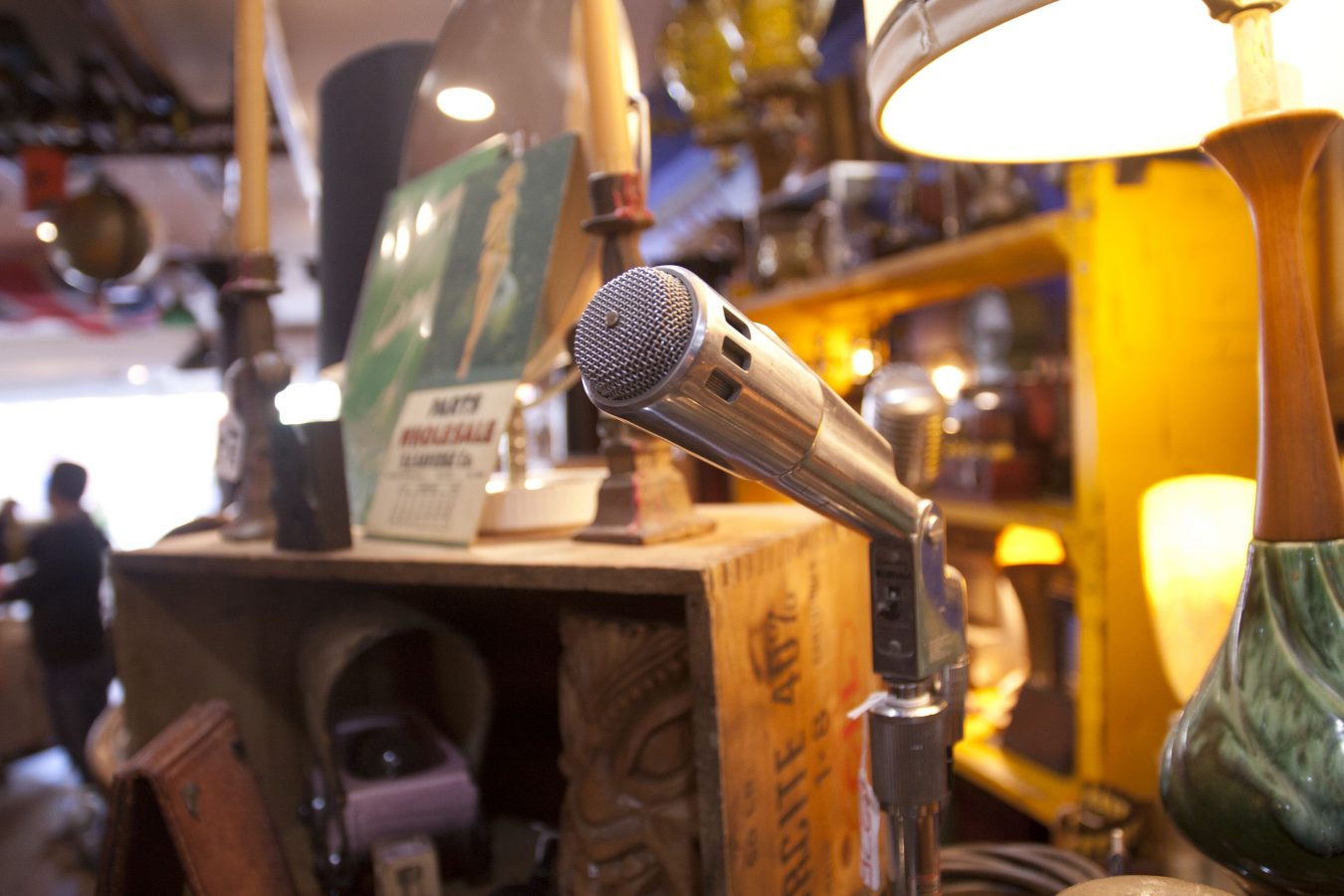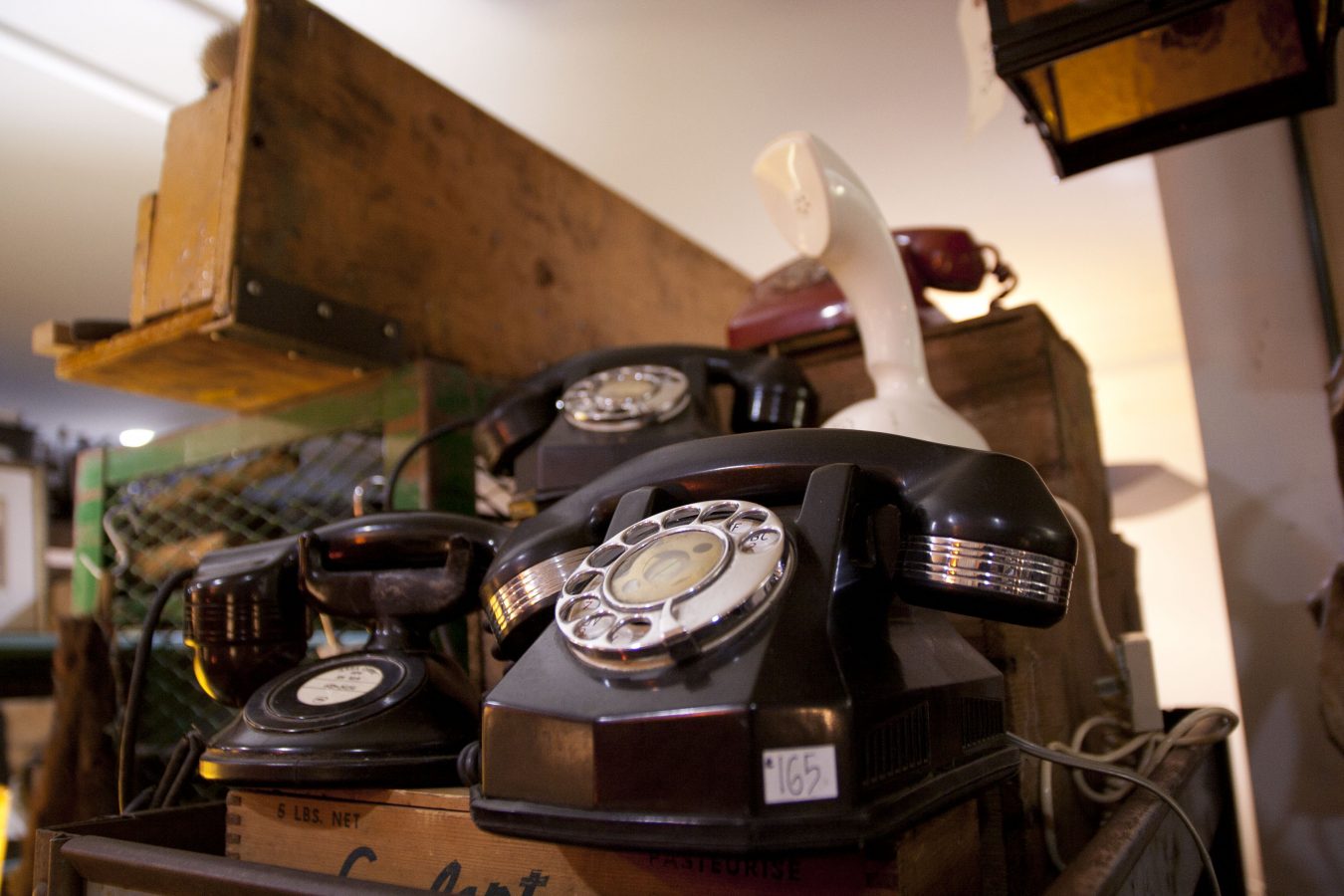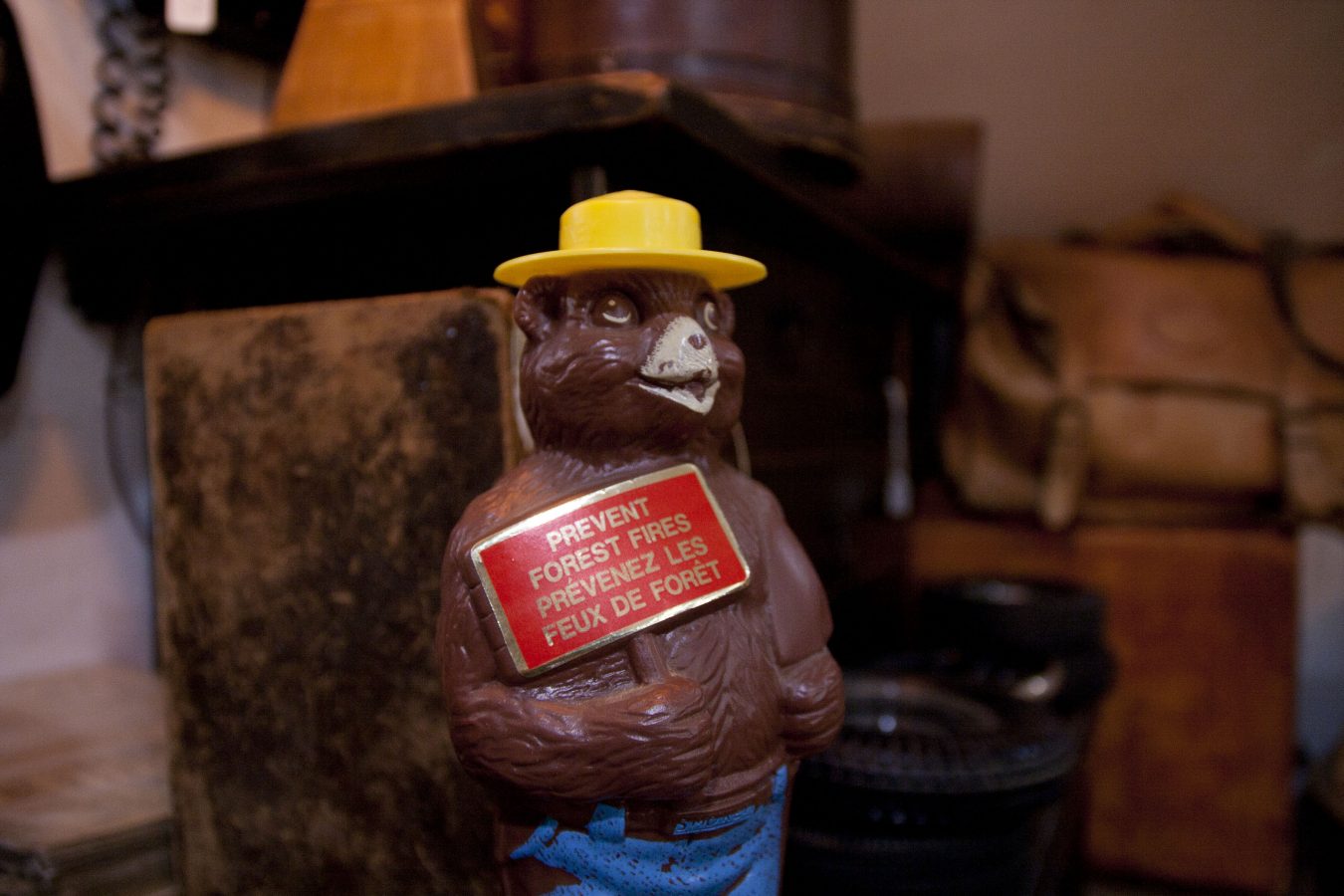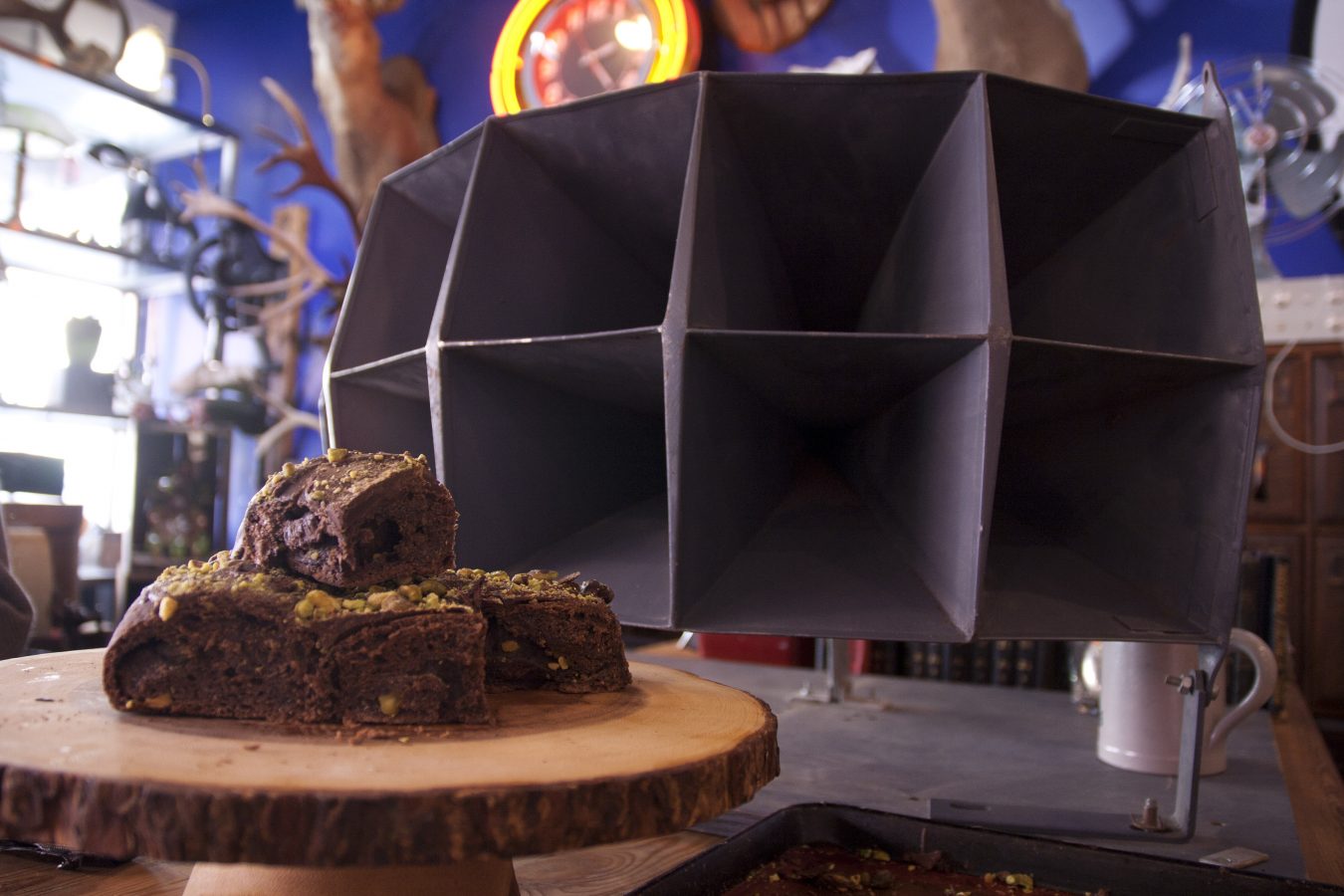Clint Moroz just might be the hardest-working guy in the antique business.
Within the span of a few minutes, he’s fielded two phone calls, chatted with multiple employees, quoted prices, approved photographs for online use, engaged with neighbourhood residents, helped set up a barbecue, and offered beer and wine (free of charge) to most of his Vancouver store’s 20-plus customers.
“This is actually a pretty quiet day for us,” he laughs.
Like the man who runs it, Space Lab—Moroz’s Pender Street storefront—is full of energy, serving not just as a destination for antiques, but also as a combination coffee shop, barbershop, vegan pastry cafe, custom fabrication facility, and de facto community hub for the Chinatown neighbourhood in which it resides.
“It’s meant to be a progressive business model,” Moroz notes. “A community space. The coffee shop brings people in, and they often leave with something. My customers come in, and they’ll grab a coffee. A barbershop is a great fit conceptually. It’s all about finding different ways to engage with your world.”
Engagement is something Space Lab manages to do on multiple fronts; the vegan pastries are courtesy of celebrated local baker Annabelle Choi (whose creations also grace the shelves at Matchstick); the java and espresso are courtesy of Aubade Coffee, via owner Eldric Stuart; and the downstairs fabrication workshop has made custom pieces for residential and commercial clients including Bows and Arrows, Ritual on Denman, and Luke’s General Store in Calgary.
As for the antiques, they’re thanks to the hard work of Moroz and his team. Moroz, who grew up as a farmer in Saskatchewan before transitioning into contracting in Alberta, has spent close to 10 years in the Vancouver antique business—originally on the corner of Main and 3rd—amassing a treasure trove of fascinating finds, including everything from vintage stereo systems, to typewriters, to taxidermy, to furniture and signage.
“All of this came about from being a contractor,” he recalls. “I used to do renovations in Calgary—I’d do historic renovations of a 1912 house, for example, and put it all back to 1912. I’d end up buying things for clients, and then over time, people would go, ‘Hey, you’re buying all those old lights and fixtures? Do you want to buy this?’ So by the time I moved here, I had a good chunk of stuff. It was a natural progression. I was getting it all anyway, and these things, they make me really happy.”
In the eight years since it opened (the store celebrates its anniversary on February 10), Space Lab has grown steadily in popularity. And while its business model has received attention from as far away as Paris, Space Lab is progressive in other ways, too; at every turn, Moroz has endeavoured to keep the store warm and welcoming—in many ways the antithesis of the traditional antique shops he remembers from his younger days. “When I was a kid, I was fascinated by this kind of stuff,” he chuckles, “but you’d go to a store, and there’d be this miserable son-of-a-bitch behind the counter, and they’re telling you not to touch anything. Or they’re glaring at you all the time. Nobody wants to be glared at, or talked down to. It’s this intensely antagonistic relationship with your customers.”
Luckily, so far, Space Lab’s relationship with its customers, and indeed the neighbourhood itself, is anything but antagonistic; Moroz’s mantra of engagement resonates at every level of the business. For starters, he employs a number of Downtown Eastside residents, paying them cash for odd jobs. Beyond that, he hosts a barbecue every Sunday, serving up hot dogs, grilled vegetables (again, free of charge), and sometimes more exotic offerings like pulled pork.
“We’ve had bands play, we’ve had buskers, we’ve had food trucks come in,” Moroz says. “I can have conversations here. Most of my friends in the city these days are friends through the store. You’re breaking down barriers. You’re making things less transactional and more experiential.”
Having a social conscience is important to Moroz, in part as a mindful reflection of his store’s place in the neighbourhood, and in part because of what he views as a widespread lack of ethics in the antique business. “A lot of these guys, they’re used to buying things for 10 cents and selling for $20,” he muses. “We have expensive stuff, but sometimes I walk into a store and go, ‘Where the hell did that come from? That’s insane!’”
“$65?” says a woman from a nearby aisle, holding up an antique, as if on cue.
Moroz shrugs. “Sure.”
If his attitude toward his stock seems casual, it may be due, in part, to precisely how much of it is moving through the business at any given time. Space Lab’s incoming pieces already overflow into a massive basement, an off-site storage yard, and at least two shipping containers—with more coming in all the time, usually from estate downsizing companies and email inquiries. Outgoing business is conducted on multiple fronts besides the shop, including online through Craigslist, and to film and television companies (which currently account for a whopping 80 per cent of the store’s sales).
In the early days, Moroz split his time between antiques and contracting work, and while Space Lab has been successful enough for him to put contracting on hold for the moment, he’s quick to point out that he’s not done tinkering with the business model. With so much of Space Lab’s sales coming from the entertainment industry, Moroz is considering a separate warehouse space for those clients, in hopes of opening up the storefront to a more curated selection of vintage pieces, locally-made candles and soap, and even custom-manufactured furniture. The goal, he notes, is to create “activation” within the Chinatown region, and in so doing, bring other like-minded businesses around to the merits of working in one of Vancouver’s most eclectic neighbourhoods.
“You need things that have some investment,” says Moroz. “There’s a certain sort of place that can thrive in a neighbourhood like this: out-of-the-way, interesting, unusual in terms of concept, with low overhead. People’s engagement is changing. How they perceive space is changing. Retail is changing.” Most of all, Moroz aims to stay engaged, creating community and helping to make some memories—whether with a vintage piece, a complimentary beer, or a vegan pastry. “You want things with more character and longevity, and that’s a style you can’t buy off the shelf,” he asserts. “A lot of people like actually engaging: stepping out and having an adventure while they’re finding things. It’s building a story. ‘Hey, remember the day we found that thing?’ You didn’t just walk in and walk out. You had a haircut, you got a coffee. It’s not just an item anymore. It’s a memory.”
Explore more of Vancouver’s Community.














